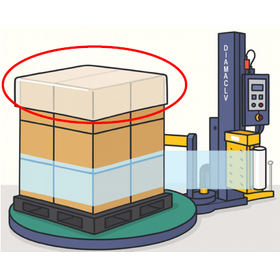We offer a variety of sizes of FIBC bags! They are used for packaging and transportation in a wide range of fields.
A "Furekon bakku" is a bag made of chemical fibers such as polypropylene and polyethylene. It is used for packaging and transporting a wide range of items, including grains, root vegetables, feed, fertilizers, soil, granular product materials, and waste generated during manufacturing processes. When not in use, it can be folded, saving storage space. 【Features】 ■ Full top opening - The top opening can be fully opened like a garbage bag. - Suitable for placing waste or bulk items. ■ Half top opening - The top part is narrower, making it suitable for placing small items like pellets and other granular materials. ■ Others - We offer various shapes of Furekon bakku, including round and square types, with inverted belts, and for capacities of 500kg and 800kg. *For more details, please refer to the PDF document or feel free to contact us.
Inquire About This Product
basic information
【Delivery Packaging】 ■ FIBC in FIBC: Packed with about 20 to 30 pieces inside the FIBC (varies by shipping source) ■ Palletized: Approximately 20 pieces stacked on a pallet ■ Compressed: Compressed by machine, making it the most compact and easy to load *For more details, please refer to the PDF document or feel free to contact us.
Price range
Delivery Time
Applications/Examples of results
For more details, please refer to the PDF document or feel free to contact us.
catalog(1)
Download All CatalogsCompany information
Kiefer Co., Ltd. is engaged in a reuse business for logistics materials aimed at a decarbonized society. Logistics materials such as pallets are essential items for improving transportation efficiency in logistics. It is said that there are hundreds of millions of these logistics materials used annually. If these logistics materials are incinerated every time they are used, it results in an enormous amount of CO2 emissions each year. What our company does is purchase unused second-hand logistics materials and sell them to customers who need them. By doing so, we promote the circulation of logistics materials and aim for a society where necessary resources are distributed to those who need them, rather than a society of excessive consumption.





![[Order Design Available] FIBC (Flexible Intermediate Bulk Container) HS-008S 211023](https://image.mono.ipros.com/public/default/object/noimage_l.gif?w=280&h=280)


![Stretch Film "Komaki" [Industry First! Optimal for ECO and Work Efficiency!]](https://image.mono.ipros.com/public/product/image/474/2000317425/IPROS17167699807860247107.jpeg?w=280&h=280)


